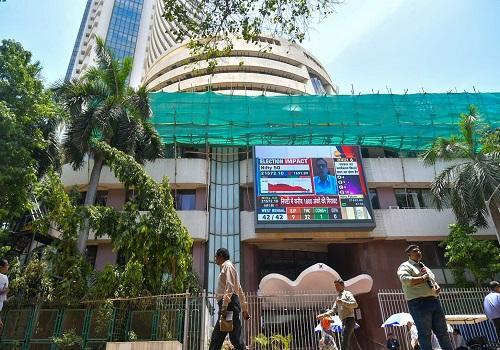
Indian Stock Market Ends Lower, FMCG Stocks Drag
The Indian stock market ended in the red for a second straight day on Wednesday, weighed down by high valuations and mixed global cues. The Sensex dropped 239.31 points to 81,312.32, while the Nifty fell 73.75 points to 24,752.45. FMCG stocks led the decline, with the Nifty FMCG index down 1.5%, alongside losses in other key sectors.
The market has been struggling to maintain its momentum in recent days, with investors becoming increasingly cautious due to concerns over valuations. The Sensex has corrected by over 1,500 points in the past week, and the Nifty has shed nearly 500 points during the same period. Despite this, many experts believe that the market is still overvalued and that a correction is due.
One of the main reasons for the decline in FMCG stocks is the increased competition in the sector. Several new players have entered the market in recent years, leading to a surge in supply and a decline in prices. This has made it difficult for established players to maintain their market share and profit margins. In addition, the ongoing lockdowns and restrictions have also had a negative impact on the sector, as consumers have become increasingly price-sensitive.
Another factor that has contributed to the decline in FMCG stocks is the increase in costs. Many companies in the sector have had to increase their prices due to rising raw material costs and other expenses. This has made their products less attractive to consumers, leading to a decline in demand.
The decline in FMCG stocks has also had a negative impact on the broader market. The Nifty FMCG index, which tracks the performance of the top FMCG stocks, has fallen by over 1,500 points in the past month. This has led to a decline in the overall market, with many other sectors also experiencing losses.
Despite the decline, many experts believe that the market will recover in the long term. The Indian economy is expected to grow strongly in the coming years, driven by a range of factors including a young and growing population, increasing urbanization, and a surge in digital adoption. This is likely to lead to strong demand for consumer goods and services, and will drive growth in the FMCG sector.
In addition, the government has taken several steps in recent months to boost the economy and attract foreign investment. These include reducing corporate taxes, increasing foreign direct investment limits, and increasing the allocation for infrastructure development. These steps are likely to have a positive impact on the market and will drive growth in the coming years.
The decline in the FMCG sector has also led to a decline in the overall market. The Sensex has fallen by over 1,500 points in the past week, while the Nifty has shed nearly 500 points during the same period. This has led to a decline in investor confidence, and many experts believe that the market will continue to decline in the short term.
However, despite the decline, many experts believe that the market will recover in the long term. The Indian economy is expected to grow strongly in the coming years, driven by a range of factors including a young and growing population, increasing urbanization, and a surge in digital adoption. This is likely to lead to strong demand for consumer goods and services, and will drive growth in the FMCG sector.
In conclusion, the Indian stock market ended lower on Wednesday, weighed down by high valuations and mixed global cues. FMCG stocks led the decline, with the Nifty FMCG index down 1.5%, alongside losses in other key sectors. Despite the decline, many experts believe that the market will recover in the long term, driven by strong growth in the Indian economy and the FMCG sector.
Source:
https://investmentguruindia.com/newsdetail/indian-stock-market-ends-lower-fmcg-stocks-drag812513






